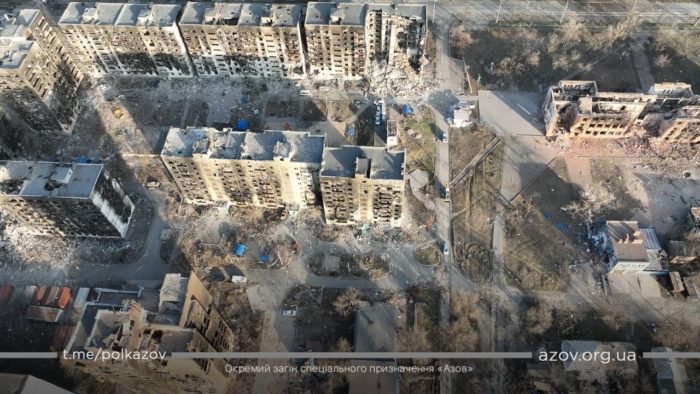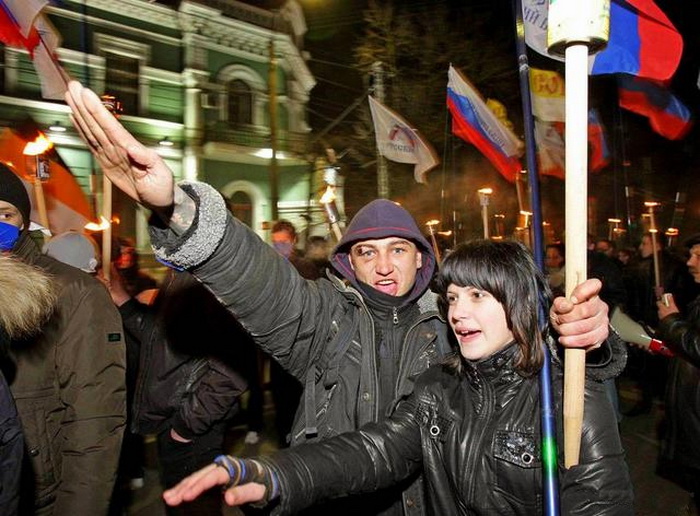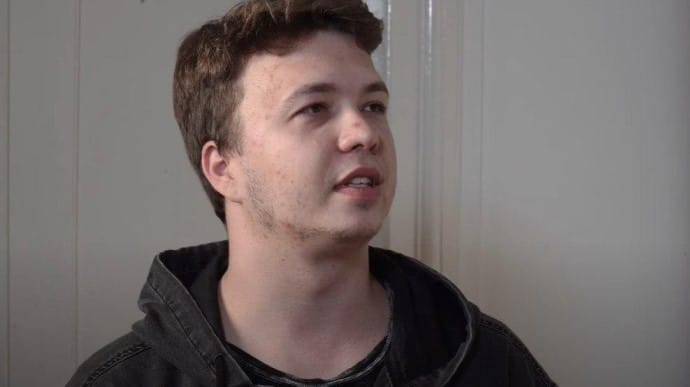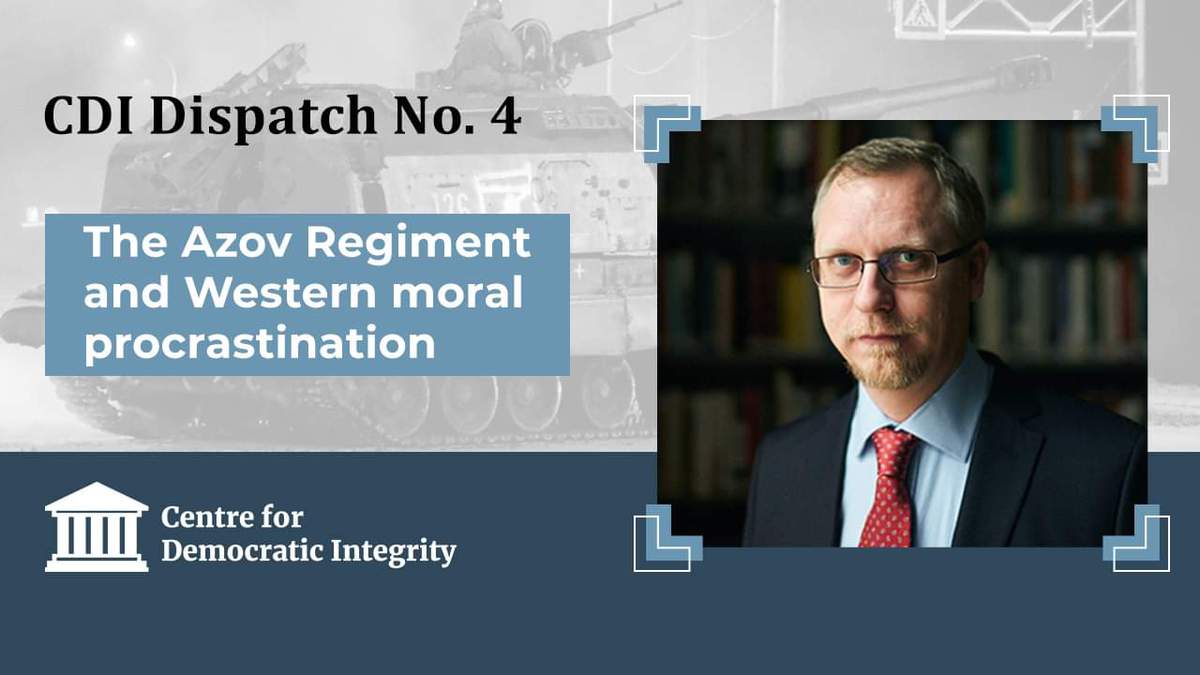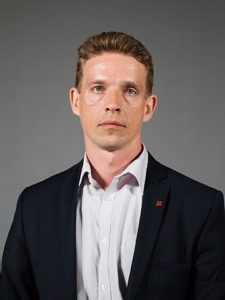
1. Is Azov regiment / brigade /battalion "neo-Nazi"?
I'm used to answering questions about the Azov Regiment from foreign journalists from various countries, from India to Brazil, almost every day. Now, against the background of the terrible humanitarian crisis in Mariupol, the city which is being heroically defended by the Azov soldiers, I started reacting quite emotionally to the question: "So, to which extent is Azov really a threat?"
Questions about Azov come from almost all Western journalists and political experts. However, only a few of them can articulate what exactly the problem is and where the reasons for such concern come from.
Mostly often journalists refer to the Russian official plan of "denazification" that mentions Azov in particular. But it is insane to subscribe to all Russian propaganda tricks -- like the story about alleged Ukrainian biological laboratories producing bioweapons which can target exclusively ethnic Russians. Moreover, even the Minister of Foreign Affairs of Russia claims that Russia did not attack Ukraine.
Western audiences should just get used to the idea that Russia and its officials are constantly lying every time they open their mouths.
Here is the fact: The Azov Regiment is one of the units of the Ukrainian National Guard, which is protecting the civilians of Mariupol from extermination right now.
So, the short answer to the question about "Azov Nazis" is: no, Azov is not a neo-Nazi regiment.
2. Are all the members of the regiment neo-Nazis?
No, they are not. There are no units created based on ideology among the Ukrainian National Guard, nor there are any among the Armed Forces of Ukraine. The only possible ideology of any unit of the National Guard of Ukraine is the Disciplinary Statute. Among other rules, it states the obligation to
respect human rights, honor and dignity” and “refrain from expressions and actions which can violate human rights or humiliate honor and dignity of a person.
There were some individuals with neo-Nazi background and Far Right views among the people who founded The Azov Battalion in the very beginning in 2014, though even not all the founders had such a background.
For example, among the first members of Azov there were activists from the AutoMaidan volunteer groups and many Jews (including at least one Israeli citizen). Most of the soldiers with far-right background left the regiment by the end of 2014. The rest of the far-right radicals who clearly articulated their views were discharged in 2017 by the order from the new commanders of the Regiment.
As of today, there are absolutely no grounds for accusations that neo-Nazis serve in the Azov Regiment.
3. Is it a paramilitary or an official structure?
Azov is a special task force of the National Guard of Ukraine (military unit #3057), an official government regiment under command of the Ministry of Internal Affairs of Ukraine. It would be wrong to call it “militia,” the term which is still widely used in regards to Azov.
4. Who serves in Azov?
People who are willing to defend their homeland and Ukrainians and who have passed the competitive selection process (Azov enjoys the benefit of being able to choose, as there are a lot of people who would like to join its ranks).
There are people of different ethnic origins - Russians, Jews, Crimean Tatars among others, of various religious views and political affiliations. There is no limitation on who could become a part of Azov. According to the unit commanders, the majority of the personnel are native Russian-language speakers.
How the West enabled genocide in Mariupol with its misguided Azov obsession
5. Is the head of Azov also a leader of the far-right party “National Corps”?
No, he is not. Active servicemen in Ukraine are not allowed to be members of any political party - defense of the homeland is above any party interests and political affiliations.
Andriy Biletskyi, the head of the National Corps political party, who did play a role in the formation of the unit and is rightfully considered to be its founder, headed Azov for only a couple of months in mid-2014 and since has returned to political activity.
Biletskyi is still in touch with his own “brainchild,” he was raising money for treatment and rehabilitation of wounded soldiers, but since October 2014 he doesn’t have any formal affiliation with the unit.
6. Is the Natsionalni Druzhyny (voluntary detachment for maintaining public order) a part of the Azov Regiment?
No. The Natsionalni Druzhyny is a public organization, which is not active for almost two years. It is not related to the National Guard in any way.
7. Is the Azov Regiment a fighting wing of the National Corps?
No, it is not. The political party has no affiliation with the regiment. The Armed Forces of Ukraine and the National Guard stay away from politics.
However, Andriy Biletskyi is trying to exploit his association with the Azov "brand" to benefit his political career. It helped him once to acquire a seat in the parliament and ensures his presence in the media.
Andriy Biletskyi's first political project after leaving the military and returning to public life in October 2014 was even called the Azov Civil Corps. He even tried to recruit the veterans of the regiment to the National Corps Party and a set of public organizations around the party. But it is more about converting the fame that he earned during the first Russian invasion into political capital and has nothing to do with the Azov Regiment itself.
8. Are there any far-right European/US nationalists in the Azov ranks?
No. Unlike the Armed Forces of Ukraine, the National Guard does not allow foreigners to serve in its ranks. Back in 2014, when not all the formalities were followed, indeed de facto there were foreign citizens serving in Azov. However, a lot has changed since that time. There are currently no foreigners, especially from Western countries, serving in Azov and none were listed for several years.
From time to time some adventurous Western far-right activists are trying to join the regiment, and none of them were ever accepted. At best, their attempts ended in an opportunity to enjoy good Ukrainian beer and come back home. At worst, the most persistent and radical ones had to be deported from the country by the Security Service of Ukraine.
Martyred city of Mariupol wiped out of existence by Russia’s incessant shelling
9. Is the unit considered to be an extremist organization?
No. It is considered such in the Russian Federation, where not only Azov, but even Facebook and Instagram are officially declared to be extremist resources.
However, a few years ago in the United States
there was a motion to recognize Azov as a foreign terrorist organization. After clarification that Azov was an official military unit, the initiative was abandoned (and the first foreign group of white supremacists to be included in the list of terrorist organizations was the Russian Imperial Movement).
10. Does Azov stands for "the purity of the white race"?
No, never. Not even the National Corps political party stands for this. Though Andriy Biletskyi personally made some racist statements before the Maidan Revolution back in 2006-2010, he never said something like that since.
11. Does Azov conduct torchlight processions?
I have never asked myself such a question, or the question of whether they play ping pong in Azov. I'm not sure it's really worth paying attention to. In Oslo, a torchlight procession commemorates the victims of the terrorist attack of the white supremacist Anders Breivik. The victory over Nazism is celebrated in Moscow with a torchlight procession. Torchlight processions are practiced by the Red Cross Society in Italy and the military in Germany.
I was inside when the Russians bombed Mariupol drama theater: survivor’s story
12. Does Azov glorify Nazi ideology?
“We despise Nazism and Stalinism.” This is stated in one of the last posts on the official Telegram channel of the unit (from March 28). And it is written in Russian.
13. Did Azov fighters commit war crimes in Mariupol both in 2014 and in 2022?
The UN Human Rights Monitoring Mission, which was present in Mariupol until the end of February 2022, did not record such cases at all. Even the Russian side did not provide convincing evidence of such crimes.
Yet, any hypothetical violations by Azov, which protects civilians from the aggressor, cannot even theoretically be compared to air strikes
on the municipal maternity hospital or the city's drama theater where women and children hid.
14. So, if everything is so obvious, why does the Western audience continue to express concern about Azov?
There are three answers to this question.
First of all, it is true that some of the founders of Azov had a far-right and, in some cases neo-Nazi, background. This was partially reflected in the emblem of Azov. But that does not describe Azov's activities at all. For example, Mariupol had a fairly large Jewish community with an active synagogue, and the Jewish community never reported any conflicts with Azov members.
Thw situation with the local Muslims or with a large (about 100,000) Greek community is similar. The greatest danger for the ethnic communities of Mariupol, as well as for all the residents of the city, is the indiscriminate use of heavy weapons against civilians by the Russians.
Secondly, Russian propaganda is involved in creating the image of a "criminal neo-Nazi nationalist battalion." By sprinkling outright lies with a couple of facts that fit into their false narrative (such as the emblem of the regiment and the political background of its 2014 founders), it managed to create a glossy propaganda picture.
Russian propaganda is systematic, professional, and surprisingly effective, especially in regard to Western society, which has no immunity to such outright lies. Western society tends to reject the black-and-white vision of the world and to consider more complex models. Typically for this worldview is to look for the truth somewhere in the middle, between the polar points of view.
But the truth, as Polish philosopher Adam Michnyk noted, does not lie in the middle, it lies where it lies.
Finally, propaganda works only when people are ready to believe in it. People are eager to believe in things they have known already. It is convenient for the West to lull itself with fables that everything is complicated and ambiguous because it justifies doing nothing.
Myths about "Ukrainian nazis" are beneficial not only to Russia. They are a strong argument for doing nothing while watching Ukraine fighting alone against a predominant enemy while feeling no sympathy for the Azov soldiers, who are dying defending Mariupol. These myths should be debunked and rejected by real friends of Ukraine.
He has been actively involved in the preservation of Jewish historical and cultural heritage and is one of the founders of the Chernivtsi Museum of the History and Culture of Bukovinian Jews. He worked at the Yad Vashem Holocaust Memorial and taught at the Institute of Asia and Africa of the Moscow State University and the Ukrainian National University of "Kyiv-Mohyla Academy."
Read More:
- How the West enabled genocide in Mariupol with its misguided Azov obsession
- Bucha massacre: Ukraine urges ICC to gather evidence of Russian war crimes
- “They killed my family in cold blood!” Russian military targets civilians fleeing bombardments
- Maks Levin, photographer of Russian war against Ukraine since 2014, killed by Russian troops near Kyiv
- Protecting state officials from Russian abductions is crucial to Ukraine’s victory
- Russian occupiers launch war on Ukrainian history, burning books and destroying archives
- Ukraine still drastically lacks weapons to defend its airspace, says Ukraine’s Air Force Command
- Timothy Snyder: If Ukrainians hadn’t fought back, the world would’ve been a much darker place
- “Putin is at war with the West in Ukraine” – historian Hrytsak on the main reason of war

